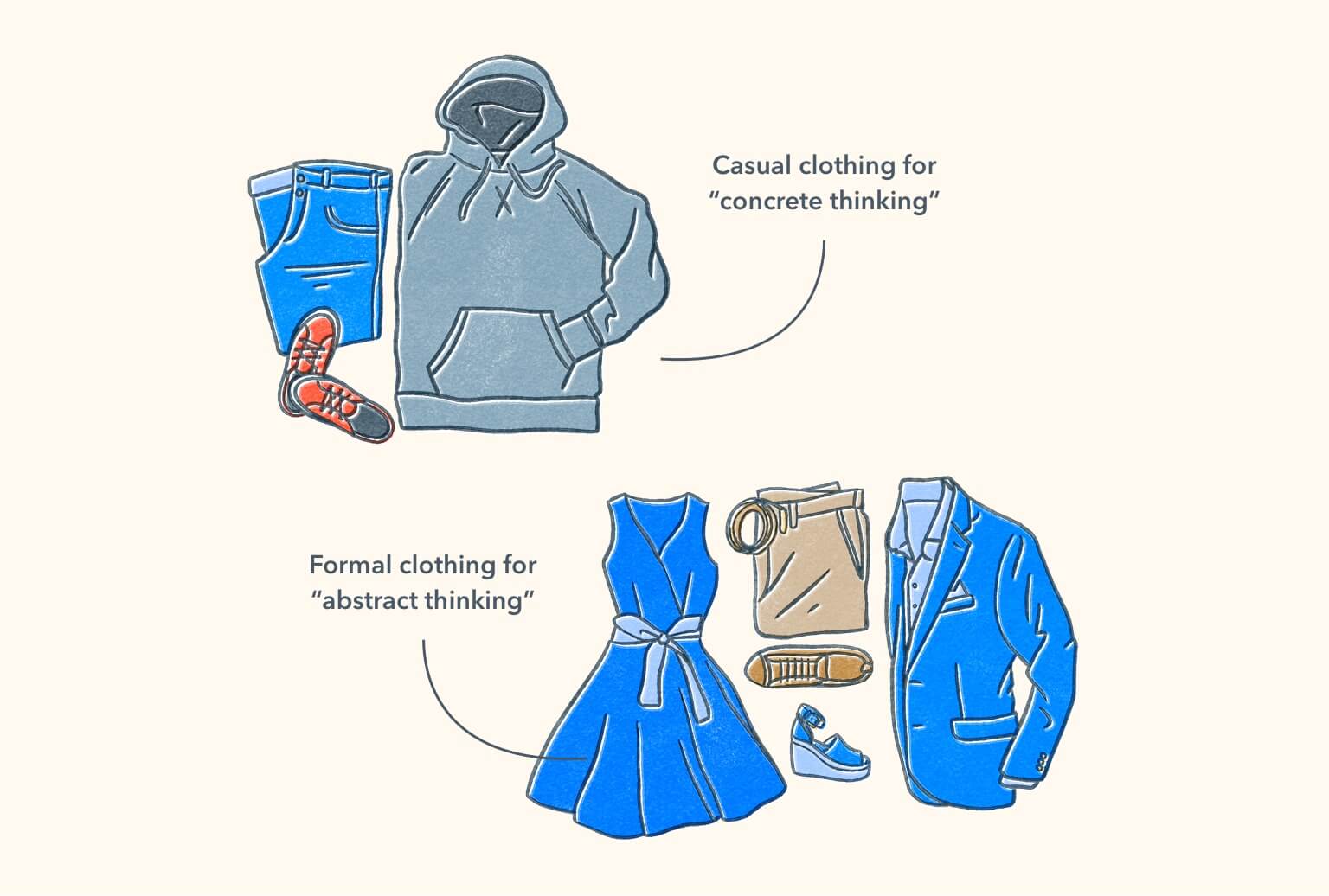Our clothes have the ability to change us. Wear gym clothes, and you may feel more physically fit and energetic. Wear a suit, and you may feel more powerful and confident. Wear a pair of jeans and a t-shirt, and you may feel calmer and more friendly. What we wear actually impacts how we think, feel, and interact with the world.
According to Adam Galinsky, a social psychologist and chair of the management division at Columbia Business School, “It has long been known that clothing affects how other people perceive us, as well as how we think about ourselves.” Perhaps even more than how others perceive us, our clothes affect how we see ourselves — from our behavior to our attitudes to our mood and confidence.
But can our clothes actually impact our performance on tasks like taking an exam?
The answer is yes. In this blog post we are going to cover what you should wear on exam day.
What is Enclothed Cognition?
In a 2012 study through Northwestern University, Galinsky along with Hajo Adam ran experiments that resulted in the coining of the term, enclothed cognition. Enclothed cognition captures the systematic influence that clothes have on the wearer’s psychological processes.
In other words, they found that our clothing can enhance our psychological states, and it can improve our performance on tasks. This means we can intentionally choose to wear clothing that will induce more desirable psychological states and enhance task-related performance.
Science Has Indicated That We Subconsciously Associate Particular Types of Clothings With Specific Mindsets
But why is this? Positive psychologist, Emily VanSonnenberg, describes exactly how certain types of clothing can get us in a particular mindset, all based on understood associations with those pieces of clothing.
“People must ascribe a symbolic meaning to the article of clothing and actually wear it, for that clothing to have any measurable effect. For example, doctors (who wear coats) are generally thought to be highly intelligent, precise, and scientific thinkers. Artistic painters are generally thought to be creative, free-spirited types.
Ergo, when a person ascribes a symbolic stereotype to an article of clothing while wearing that article of clothing, then the characteristic, strength, and/or ability symbolized by the clothing itself actually seems to have measurable effects on psychological states and performance.”
Our Clothing’s Impact on Test-Taking
Even more importantly, different styles of clothing may influence our test-taking skills. According to a 2015 study published in Social Psychological and Personality Science, wearing more formal clothing can help us think more abstractly and holistically.
According to Abraham M. Rutchick, a psychologist at California State University, Northridge and the study’s lead author, “The formality of clothing might not only influence the way others perceive a person, and how people perceive themselves, but could influence decision making in important ways through its influence on processing style.”

For example, some situations require “concrete” thinking, a type of thinking that is more concerned with tangible ideas such as formulas and details. In these types of situations, it could be more beneficial to dress casually instead of dressing more formally as this will help us focus on the task at hand.
However, in situations where more “abstract” thinking is necessary, such as taking an exam, dressing more formally can increase our creativity, our ability to connect dots, and our ability to solve problems.
Using Enclothed Cognition to Our Advantage
Instead of studying in your sweatpants or pajamas, it helps to put on some “real clothes”, no matter how tempting the former may be. This will help you mentally feel more productive and better your chances of staying focused.
When it comes to taking an exam, think about how you want to feel that day; confident, smart or focused. Once you’ve decided, ask yourself, “Which clothes or article of clothing would make me feel that way? What colors would make me feel that way?” Once you’ve pinpointed your options, wear them on your exam day.
In summary, it pays to be mindful about what you wear. The beauty is that you have the power to intentionally shape your experience and ability each and every day. Whatever type of day it ends up being, the power is in your hands to shape it.

 learning science
learning science